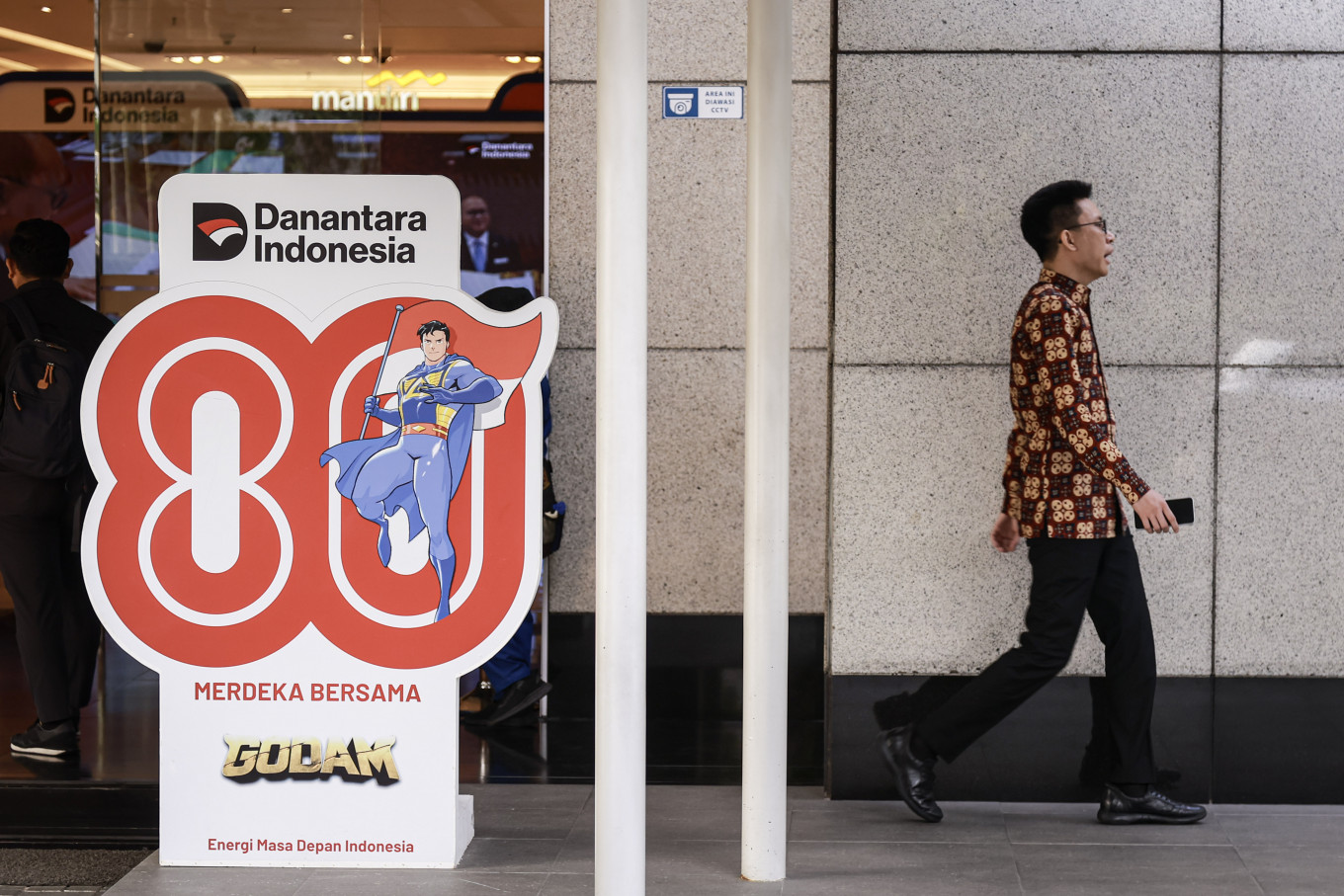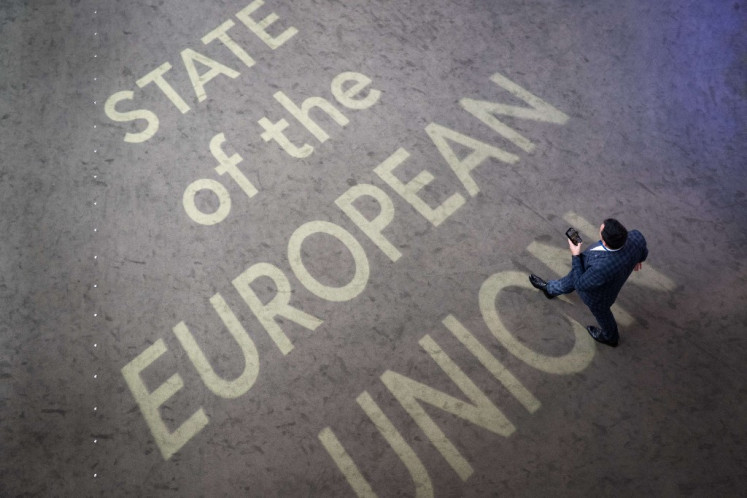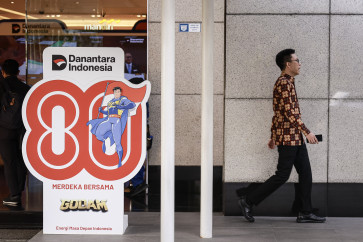Popular Reads
Top Results
Can't find what you're looking for?
View all search resultsPopular Reads
Top Results
Can't find what you're looking for?
View all search resultsThe Danantara bill and the uncertain future of SOEs Ministry
Concentrating public assets in a single body like Danantara without adequate oversight invites corruption, conflicts of interest and a decrease in transparency.
Change text size
Gift Premium Articles
to Anyone
 An employee walks past Indonesian Independence Day decorations at Wisma Danantara Indonesia, South Jakarta, on Sept. 8, 2025. In its first six months of operation, Danantara recorded several important achievements, including securing US$10 billion in funding from a consortium of 12 foreign banks. (Antara/Dhemas Reviyanto)
An employee walks past Indonesian Independence Day decorations at Wisma Danantara Indonesia, South Jakarta, on Sept. 8, 2025. In its first six months of operation, Danantara recorded several important achievements, including securing US$10 billion in funding from a consortium of 12 foreign banks. (Antara/Dhemas Reviyanto)
T
he vacant seat of the state-owned enterprises (SOEs) minister has once again sparked speculation about the ministry’s future. Yet a more decisive development is unfolding through the legislative track: The draft law on state asset fund Danantara has officially been included in the 2026 National Legislation Program (Prolegnas), alongside the Patriot Bonds Bill.
With its inclusion, Danantara is moving from a policy experiment to a permanent legal entity with the mandate to consolidate state ownership and investment.
Questions about the relevance of the SOEs Ministry have surfaced since the enactment of Law No. 1/2025, which for the third time amended the SOEs Law. This law created Daya Anagata Nusantara (Danantara) as a superholding, reinforced by Government Regulation No. 16/2025, which transferred 99 percent of Series B shares in several strategic SOEs to the new entity. Since then, the center of gravity in managing state assets has shifted toward Danantara, while the ministry has gradually lost its function.
Normatively, the SOEs Law still grants the minister broad authority: setting general policies, approving restructuring and overseeing SOEs’ performance. In practice, however, these powers overlap with Danantara, which now holds ownership and investment management functions. The result is an institutional paradox: The ministry exists on paper, but effective control over state assets has already moved elsewhere.
The Danantara bill sharpens this paradox. If passed, it would further solidify Danantara’s position while making it increasingly difficult to justify the ministry’s existence without redefining its mandate. Retaining a ministry with only limited functions risks adding bureaucratic layers, while abolishing it without creating a new oversight mechanism risks weakening public control over state assets.
The biggest problem lies in the weak design of supervision. The SOEs Law does not regulate a Supervisory and Accountability Committee, leaving its establishment to presidential discretion under Article 24 of Government Regulation No. 10/2025. The committee is optional, with no clear parameters regarding composition, authority or duties.
As a result, the mechanism depends entirely on the president’s political will and risks becoming a mere formality. There is also no guarantee of involvement by law enforcement institutions, including the Corruption Eradication Commission (KPK).


















